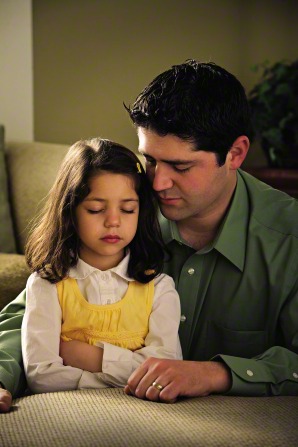Paul started his first mission in Seleucia, which is in Syria. He later went to many other cities including Salamis and Paphos in Cyprus and Perga and Antioch in Pisidia. We can learn many things about missionary work from Paul's missions, here are a few of the things that I learned.
Helps for Discouraged Missionaries (Acts 13:1-5)
1. Prayer is one of the most powerful tools we have in whatever situation we are in. Whenever we are discouraged or in need, we can talk to our Heavenly Father in prayer and He will help us. That is something that was very helpful to me many times on my mission when I felt alone or like I didn't have anyone I could talk to. I always knew that my Father in Heaven was there to listen and comfort me.
2. Along with prayer, another thing that is very helpful is fasting. The
Bible Dictionary describes fasting as a means of "developing spiritual strength" and I have found that to be true. Fasting is one way that we can receive answers to our prayers and guidance for our lives.
3. Another important principle we learn from these verses is how the Holy Ghost can help us and guide us. One thing that really stuck out to me in verse 4 is that Paul and Barnabas were "sent forth by the Holy Ghost." Where they went wasn't random or by chance, they were directed by Heavenly Father. There were certain times as a missionary when I needed to remember that I was called to certain areas or responsibilities because God wanted me there not just because my mission president decided it would be a good idea. Those were really hard times until I remembered why I was really there, then I could focus on my calling and helping the people rather than wondering why I was even there.
Barnabas and the Importance of Companions
Barnabas was a Jew who sold all of his possessions and gave the money to the apostles to help the work progress. He was the one who first went to ask Paul to join the ministry after Paul's conversion and they later went on a mission together. According to the
Bible Dictionary "he was regarded as an apostle" even though he was not one of the twelve
.
Just as Paul and Barnabas did, having a companion is important in missionary work because they can support each other and bear testimony together. They add a second witness to each other and expound on each other's teachings. They can also protect each other from danger.
Giving the Glory to God and Facing Trials with Faith
In
Acts 14:8-18 Paul and Barnabas have an experience where they are approached by a man that had been a cripple his whole life. They heal the man and immediately he starts walking. All of the people around them start praising Paul and Barnabas and giving them gifts, basically treating them like gods. When they saw what the people were doing Paul and Barnabas were upset and started telling the people that they were just men and didn't deserve this praise. They told the people that they needed to honor and worship the true God of heaven and earth.
In comparison to that story, in the next few verses (
19-22) it tells of a time when Paul was stoned and thought to be dead but he rose and continued preaching and teaching the people. The two instances are complete opposites but Paul used both as teaching opportunities. I love verse 22 because Paul is talking about his experiences and says that we enter the kingdom of God "through much tribulation." Both of these experiences were a test of faith for Paul and Barnabas. In the first they had to direct the praise of the people to the true God. That might have been difficult because missionaries get used to being rejected so it might have been nice to receive that kind of treatment for once. But they didn't allow that to happen. In the second experience, it would be really hard to go back and preach after almost being stoned to death but Paul did it because he knew he would be strengthened and that he need to help the people.







